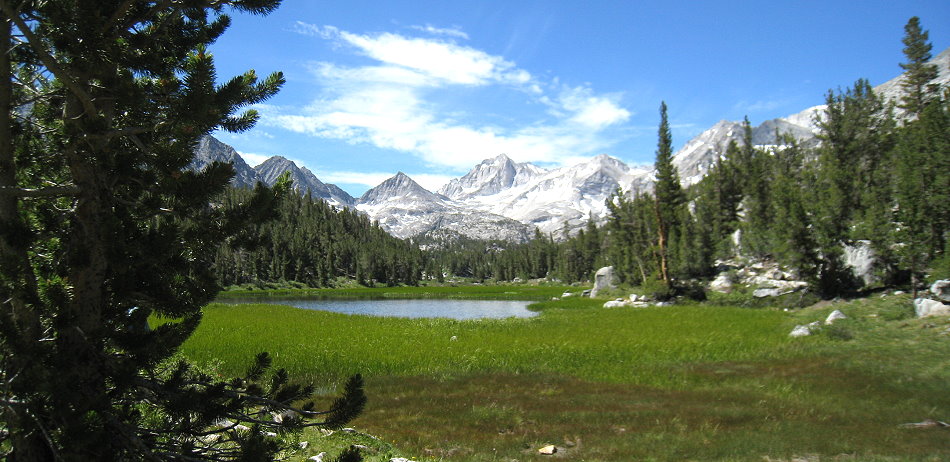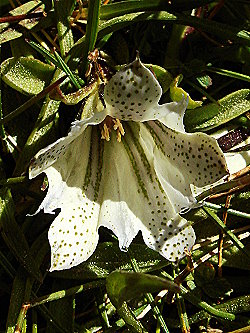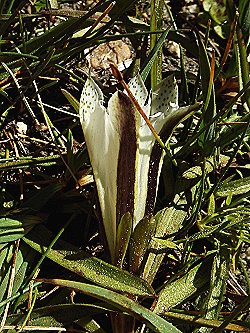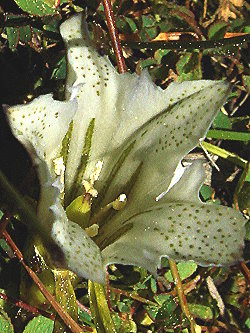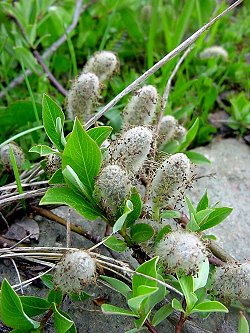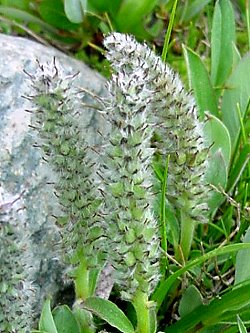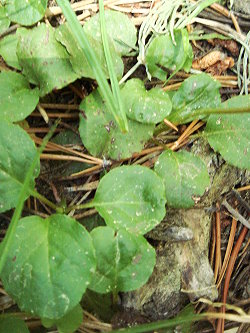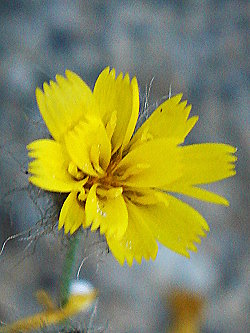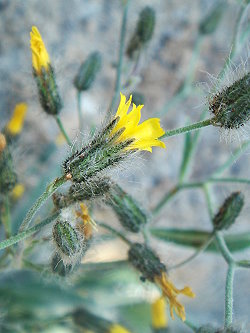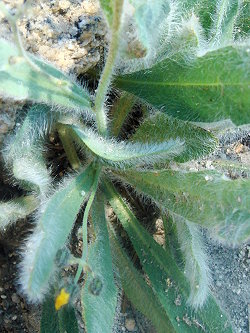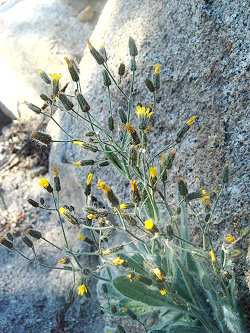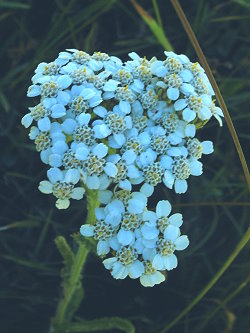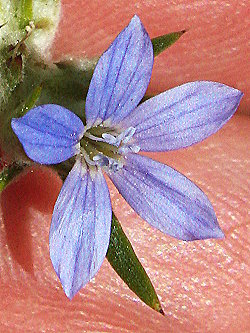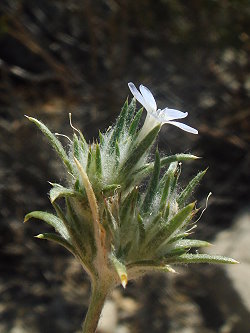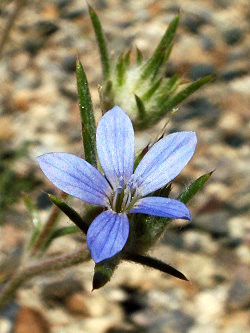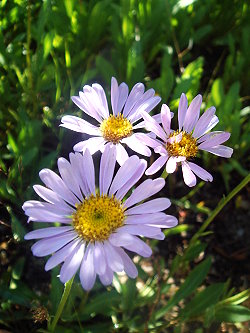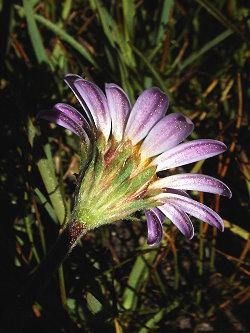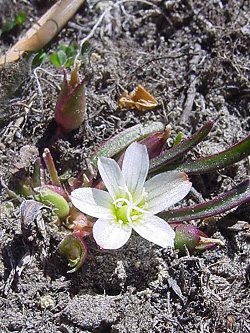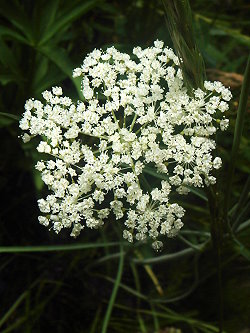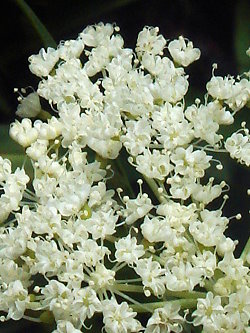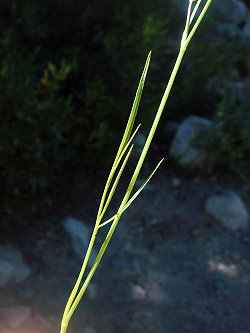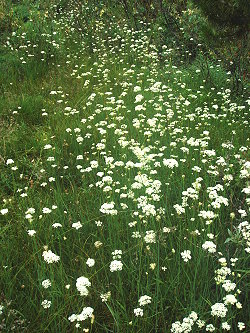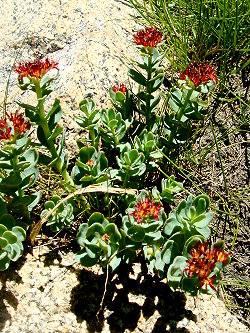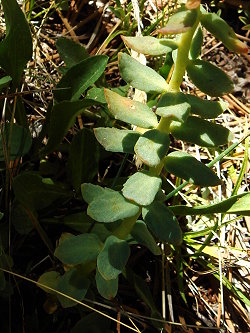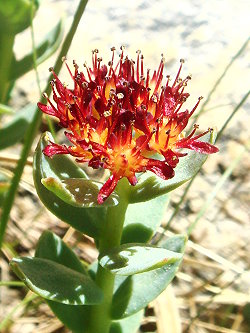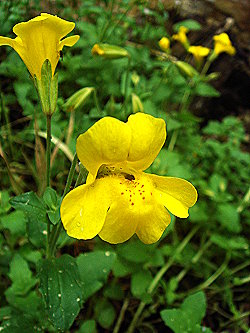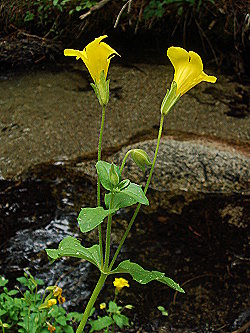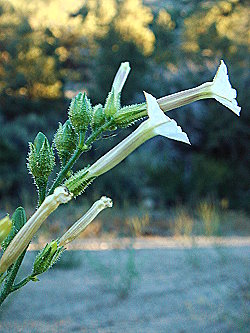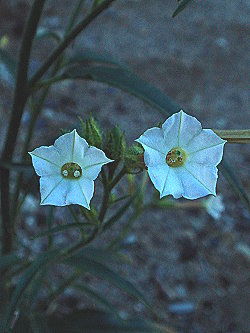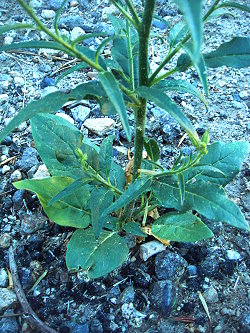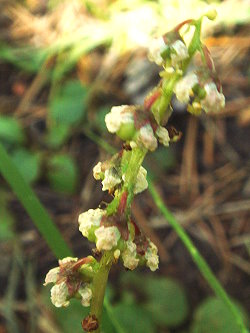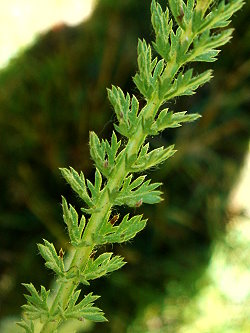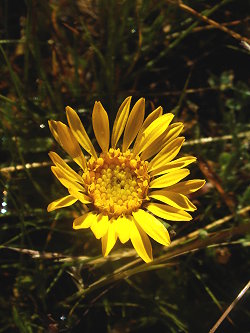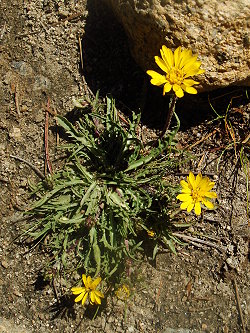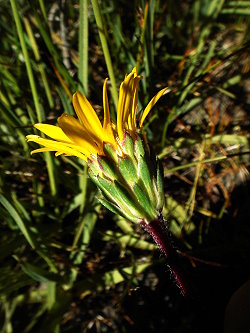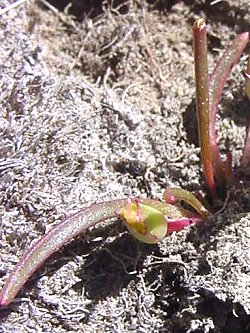This was the second of my two Jepson workshops this year, and one that I was very excited to participate in, because the Sierras has always been an area that I have been intensely interested in exploring. Our trip leader was Joy England, RSABG Masters student who has been working on the flora of Rock Creek for the past three years, with the able assistance of Poaceae authority Travis Columbus. On the first and third days we drove up the highest paved road in California from Tom's Place on the 395 to the Mosquito Flat parking area, and our second day's outing was from the Hilton Lakes trailhead on the same road. Mosquito Flat is at 10,255' and the trail through the Little Lakes Valley is an absolute delight (excepting the mosquitos), passing as it does Marsh Lake, Heart Lake, Box Lake and Long Lake, with other lakes further along than we went on Friday. The scenery was spectacular, the weather was glorious, the flora was incredible, and our group was knowledgeable and dedicated. Since some of my photographs from the first morning up the road didn't turn out well, I drove up to Mammoth Lakes again on the following Thursday and spent all afternoon and several hours the next morning re-photographing some things and checking out some different locations. I was fortunate to locate a number of species that we had not seen during the workshop. Although I stayed in the lovely community of Mammoth Lakes, most of our group was hosted at the Sierra Nevada Aquatic Research Laboratory which is part of the UC Santa Barbara Natural Reserve System. These trips defnitely whetted my appetite to explore more of the Sierras and I will be looking for future trips to this area. Some of the species shown here were photographed along Rock Creek Road on the way up to Mosquito Flat. Because of the tremendous number of species seen over 3-1/2 days, this is one of the longest photo galleries I've yet done. The symbol ^ next to the common name indicates a taxon that was new to me when I photographed it on this field trip. , and an asterisk is for a non-native species. |
